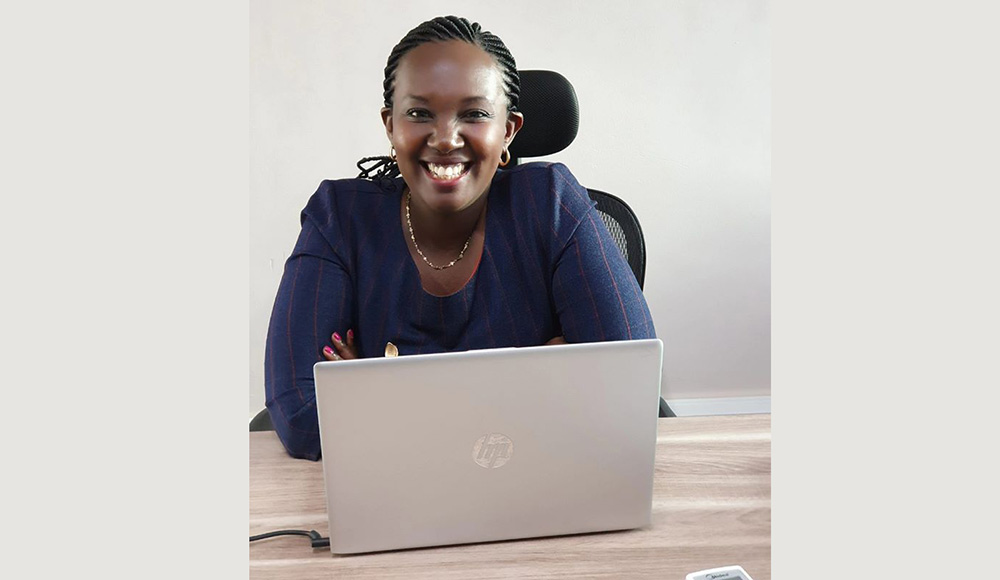Women have made strides in legal profession since Independence
Oct 05, 2021
Unfortunately, Nabasa points at sexual harassment, pay inequalities, and different problems that women face in the legal practice like chauvinism, social bias and conditioning were people base on women’s physical appearance to put them down.

Women have made strides in legal profession since Independence
Ritah Mukasa
Journalist @New Vision
Ugandan women have made huge strides in the legal profession over the 59 years.
Pheona Wall Nabasa, the President Uganda Law Society (ULS) tracks this back in 1960 when women agitated for the right to vote.
It then scales down to 1986, the turbulent times notwithstanding.
“In 1986 the Joan Kakwenzire commission was a huge milestone in this journey as it investigated injustices against women in the armed forces and during the war,” Nabasa argues.
The investigation culminated in the Federation of Ugandan Women lawyers (FIDA) starting their first aid legal clinic in 1988.
A few years later, the ULS started its legal aid clinic in 1992, and in 1989 the country had women such as Miria Matembe sit on the constituent assembly.
This would later culminate into the 1995 constitution which Nabasa believes is one of the best when it comes to women empowerment. It addresses issues of land ownership among others.
“We have also seen many women rise to influential positions like vice president, ministers, and CEOs,” she shares.
Rita Aciro, Executive director of UWONET says today, women are managing powerful law firms while others are serving at the International criminal court.
For example, ULS is currently led by five women out of nine leaders. In the Supreme Court and court of appeal, the numbers are growing. There are also a number of female magistrates, judges, and lawyers.
“Our current representatives to the Judicial Service Commission are women and we also have a chief registrar,” Nabasa shares.
She attributes the success to affirmative action including the 1.5points awarded to girls that have enabled many of them to get into the legal profession. Besides, FIDA and other women organizations have also been instrumental in protecting and strengthening women in law to practice in a way that protects other women. Currently, more women are graduating from law school than men.
Unfortunately, Nabasa points at sexual harassment, pay inequalities, and different problems that women face in the legal practice like chauvinism, social bias and conditioning were people base on women’s physical appearance to put them down.
Also, before women assume offices, they are usually over questioned than men. They stand a bigger burden to prove themselves to their male counterparts.
“But slowly and confidently, we are changing this bias for the girls’ future. If we fight graft and promote ethical practice, more women will have opportunities to grow their careers,” Nabasa hopes.
Ritah Aciro
Interventions made along the way
The former speaker of parliament Rebecca Kadaga in a paper she prepared for the Commonwealth Secretariat at the Tenth Commonwealth Women’s Affairs Ministers Meeting in Bangladesh, applauds the government for making significant progress in developing legal frameworks, policies, and programs to protect women’s human rights and advance gender equality.
For example, the Constitution prohibits laws, customs, or traditions that are against the dignity, welfare, and interest of women. It also protects an affirmative action policy that has enabled women’s representation in government.
“The challenge remains at the implementation level. Many government bureaucrats do not appreciate gender issues,” she notes.
Nabasa appreciates the 1.5 points awarded to girls has helped to get many into university and usually many of them excel.
“We also have many women role models like the former speaker of parliament who empowers women,” Nabasa says adding that Kadaga endorsed her for the ULS presidency.
“Other women like Miria Matembe have set a legacy of inspiring women just like ULS and other organizations like UN Women that has been funding women endeavors,” she elaborates.
Elsewhere, to address all forms of violence against women and children, the European Union and the United Nations launched the Spotlight Initiative in Match, a global multi-year partnership. This is coordinated by Ministry of Gender, Labour and Social Development.
Uganda is a member of the Beijing Declaration and Platform for Action and Convention on the Elimination of all Forms of Discrimination against Women (CEDAW) both geared towards the effective participation of women.
Closely related to the above, UN Women Uganda established a strategic partnership with the Democratic Governance Facility to support women leaders to eliminate all forms of discrimination against women.
Similarly, affirmative action led to the establishment of the equal opportunities commission and the Local Government Act 1997 to strengthen women’s participation in local government decision-making.
Also, women’s organizations like UWONET and FIDA have enhanced women’s participation in leadership drafted the 2006 women’s manifesto and supported them financially.

No Comment